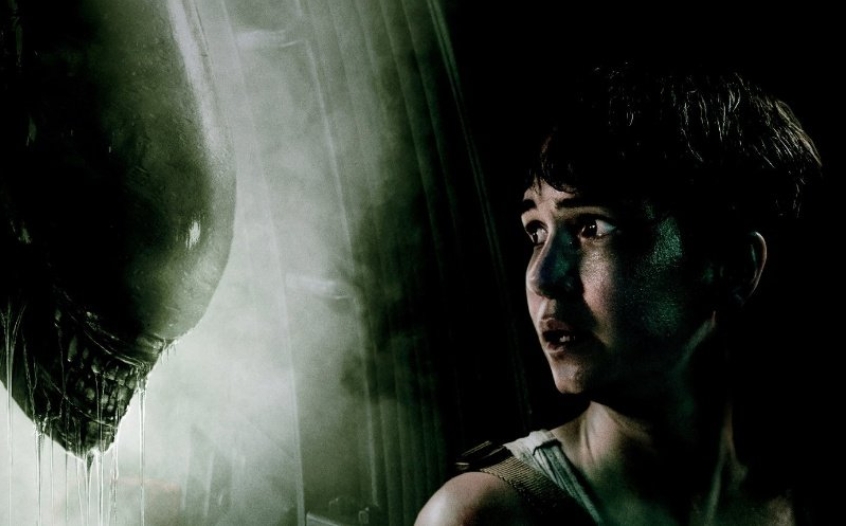The first few moments of the latest chapter in the Alien film series could almost be a promotional video for a Christian apologetics conference. Android David (Michael Fassbender), talks in a sterile room with his creator, a genius inventor who instructs David to refer to him as 'Father.' The robot is being activated, perhaps for the first time, and almost immediately asks his creator: 'You created me... who created you?' This, affirms his human maker, is the great question, and the precursor to one of the most important questions of all: 'How did we get here?'

Ridley Scott's expanding series of Alien prequels, which began with 2012's Prometheus, are increasingly concerned with the question of Genesis – how life began. In fact, Peter Weyland (Guy Pearce), the brilliant scientist and CEO involved in that opening exchange, even affirms the idea that simple evolutionary theory is a deeply unsatisfying explanation. And by telling its story of human-built robots who question their purpose, and genetically-engineered aliens who prove the folly of playing God, these films are able to pose big questions that are not only relevant to a sci-fi fantasy, but to the watching audience. How did we get here? What happens when we try to replace God with science? And do we really have any hope of a future? It's fascinating, in a culture which appears to have lost sight of these big questions, to see a major Hollywood film tackle them so directly.
Alien: Covenant will satisfy fans of the series and the genre. Like most of the other films in the series, it contains plenty of impressive action sequences, and creates a brilliantly-drawn near-future setting which is both immersive and claustrophobic. As ever, the film is at its best when human and monster are trapped at close quarters and it includes some heart-stopping encounters when the two inevitably converge. In that context, Katherine Waterston is particularly impressive as Daniels, faithfully treading the familiar ground of the female hero who ends up face-to-face with terror.
Yet despite all the effects, action and considerable gore, the film is always at its most interesting at calmer and more thoughtful moments. It's illuminated throughout by the brilliant Fassbender, playing two robotic roles which are sometimes placed in innovative juxtaposition to each other. One scene, where Fassbender's David teaches Fassbender's Walter to play a flute, is a staggering work of technological trickery and screenwriting all at the same time. It's through these characters that we frequently return to those big philosophical questions, as writers John Logan and Dante Harper throw in all manner of theological references, including nods to great cultural works by Wagner, Shelley and Michelangelo, as well as Piero della Francesca's Nativity.
The film is packed with theological themes, in fact. Another key character, thrown into leadership by the death of the titular starship's captain, suggests that he won't be trusted in his new role because of his judgment-influencing religious faith. The idea that in the near future, Christianity will be looked down upon as a sign of weakness, is an interesting theme for science fiction to explore. Yet in another moment, the Captain is affirmed for his ability to lead his crew out of a partially dark moment specifically because of his faith. As it dances around questions of theology, the film refuses to nail its colours to an atheist – or religious – view of the universe. Although while perhaps I'm reading just a little bit too much into this, at one point a key character does definitely shout 'Try Alpha...'*
Be warned, Alien: Covenant is violent, sweary, and very, very gory. Yet by choosing his subject matter, and exploring it through characters who share his interest in the biggest questions of all, Ridley Scott is creating films which manage something that the Church often can't: they spark a real interest in what we might call apologetics, and what culture has more recently deemed irrelevance. I'm not suggesting we should all flock to cinemas – it's pretty scary stuff after all – but Christians should affirm the fact that Hollywood movies are prepared to engage with the big questions of life and faith, and perhaps even be ready to use the film as a reference point to explain our own answers to them.
*This does happen, and someone really should tell the Alpha people. It's not actually a reference to them though.
Martin Saunders is a Contributing Editor for Christian Today and the Deputy CEO of Youthscape. Follow him on Twitter @martinsaunders.













